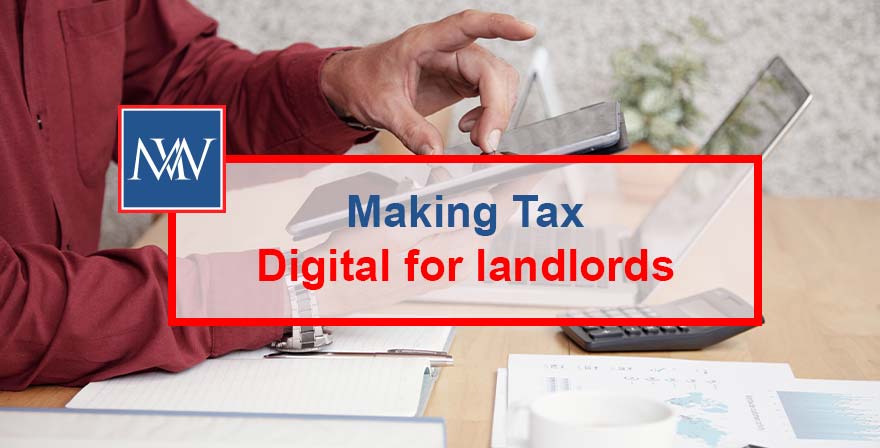
Making Tax Digital for landlords
Making Tax Digital for Income Tax Self Assessment (MTD for ITSA) is introduced from 6 April 2026 From the outset, it will apply to unincorporated traders and landlords with annual business and/or property income of £50,000 or more. It will be extended to unincorporated traders and landlords with business and/or property income of £30,000 or more from April 2027. The Government have yet to make a decision as to when or if it will be extended to those whose annual business and/or property income is less than £30,000, but is keeping the position under review.
At the time of the 2023 Autumn Statement, and following a review into Making Tax Digital for Small Business, the Government announced a number of design changes which will simplify MTD for business owners and landlords.
Nature of MTD
Making Tax Digital for Income Tax Self Assessment requires unincorporated traders and landlords within its scope to keep digital records and provide digital information to HMRC on a quarterly basis.
As a result of the simplification measures, traders and landlords will no longer need to file an End of Period Statement. To facilitate changes or the correction of errors, the quarterly updates will now cover the year-to-date, so that the figures submitted at the end of each quarter are those for the year-to-date at the end of the quarter, rather than just the figures for the quarter in question. Traders and landlords with income below the VAT registration threshold can submit three-line accounts.
It will now also be possible for taxpayers to be represented by more than one agent, which may be helpful if a taxpayer uses one agent to deal with their properties and another for their business affairs.
Impact on landlords
A landlord may find themselves within MTD for ITSA even if they only have a small amount of property income as the trigger is total business and property income. Consequently, if a landlord also has an unincorporated business, it is necessary to look at the total of business and property income to determine if MTD applies and, if so, from when. So, for example, a landlord with only £2,000 of property income will be within MTD for ITSA from April 2026 if they also have business income from an unincorporated business of at least £48,000. Therefore, landlords with a small amount of property income may need to comply with the requirements of MTD in respect of that income from as early as April 2026.
Jointly owned property
Simplifications were also announced at the time of the 2023 Autumn Statement which benefit landlords with jointly owned properties. The simplifications mean that landlords will be able to choose not to submit quarterly updates of expenses that relate to jointly owned properties. They will also be able to keep less detailed records in relation to jointly owned properties, simplifying the transfer of records between the joint owners. However, landlords will still need to submit details of expenses incurred on jointly owned properties to HMRC before they are able to finalise their tax position for the tax year.
For more information, Book a Free Consultation
Need Accountancy Support?
For information on bespoke training, or if you have any other questions for Makesworth Accountant, please fill in your details below
















 151
151